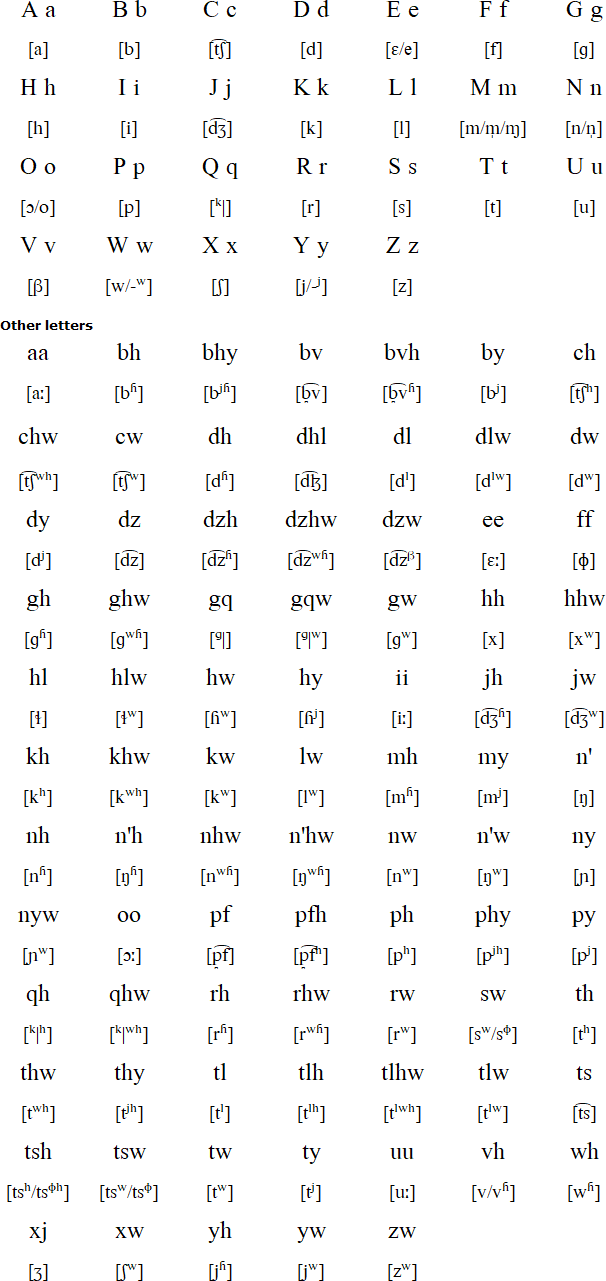Tsonga is a member of the Bantu branch of Niger-Congo language family. It is spoken mainly in northern South Africa, and neighbouring areas of Mozambique, Zimbabwe and Eswatini (formerly Swaziland). There are about 8.9 million speakers of Tsonga, including 5.68 million in South Africa (in 2013), 3.1 million speakers in Mozambique (in 2016), 100,000 speakers in Zimbabwe (in 1998), and 20,000 speakers in Eswatini (in 2010).
In South Africa Tsonga is spoken mainly in Limpopo and Mpumalanga provinces. In Mozambique it is spoken in Gaza, Maputo and Inhambane provinces. In Zimbabwe it is spoken in Masvingo province, and in Eswatini it is spoken in various parts of the country.
Tsonga is also known as Shangaan, Shangana, Shitsonga, Thonga, Tonga, Gwamba or Shangani. The native name of the language is Xitsonga, and the people who speak it are known as Vatsonga.
Tsonga was first documented by Swiss missionaries in the late 19th and early 20th centuries. The first book in Tsonga was published by Paul Berthoud in 1883.
Tsonga became an official language in South Africa in 1996. It is used there is schools and on in radio broadcasts. Tsonga is an offically recognized language in Zimbabwe, where it is known as Shangani, and is taught in schools. It is also officially recognized, as part of the Tswa-Ronga languages, in Mozambique.

Download an alphabet chart for Tsonga (Excel)
Details of the Tsonga alphabet provided by Wolfram Siegel (PDF)
Vanhu hinkwavo va tswariwa va tshunxekile naswona va ringanile eka tifanelo na xindzhuti. Va havaxerile miehleketo na tshiriti kumbe ku tiva xo biha ni xta kahle nakambe va fanele va kombana moya wa vukwavo.
All human beings are born free and equal in dignity and rights. They are endowed with reason and conscience and should act towards one another in a spirit of brotherhood.
(Article 1 of the Universal Declaration of Human Rights)
Information about Tsonga | Phrases | Numbers | Tower of Babel
Information about the Tsonga language
http://en.wikipedia.org/wiki/Tsonga_language
#https://www.southafrica.com/culture/languages/tsonga/
http://olac.ldc.upenn.edu/language/tso
Tsonga phrases
http://www.salanguages.com/xitsonga/words.htm
https://kcmakhubele.wordpress.com/2014/05/06/useful-tsonga-to-english-words-phrases/
http://madyondza.blogspot.co.uk/2014/05/tsonga-as-foreign-language-most-common.html
Munghana Lonene - Tsonga radio station
http://www.munghanalonenefm.co.za
Aka, Bafaw-Balong, Bangi, Basaa, Bemba, Bembe, Bena, Benga, Bhaca, Bube, Bukusu, Bulu, Central Teke, Chichewa, Chokwe, Chuwabu, Comorian, Dciriku, Digo, Duala, Eton, Ewondo, Fang, Ganda/Luganda, Gogo, Gusii, Gwere, Haya, Hehe, Herero, Ibinda, Ikizu, Ikoma, Jita, Kabwa, Kako, Kamba, Kiga, Kikuyu, Kimbundu, Kinyarwanda, Kirundi, Kisi, Kogo, Komo, Kongo, Konjo, Koti, Kukuya, Kunda, Kuria, Kwambi, Lambya, Lingala, Loma, Lozi, Luba-Katanga, Luchazi, Lunda, Luvale, Luyana, Makaa, Makonde, Makhuwa, Mandekan, Maore, Masaaba, Mbama, Mbere, Mbukushu, Mbunda, Mbuun, Mende, Mongo, Mpiemo, Mushungulu, Mwani, Nambya, Nande, Ngoni, Nkore, North Teke, Northern Ndebele (South Africa), Northern Ndebele (Zimbabwe), Northern Sotho, Nyamwezi, Nyakyusa, Nyemba, Nyole, Nyoro, Nyungwe, Nzadi, Oroko, OshiWambo, Pagibete, Punu, Ronga, Safwa, Sena, Sengele, Shona, Soga, Songe, Southern Ndebele, Southern Sotho, Sukuma, Swahili, Swati, Tanga, Tembo, Tonga, Tooro, Tshiluba, Tsonga, Tswa, Tswana, Tumbuka, Umbundu, Venda, Vili, Vwanji, Xhosa, Yakam, Yansi, Yao, Yasa, Yeyi, Zigula, Zinza, Zulu
Languages written with the Latin alphabet
Page last modified: 05.03.24
[top]
You can support this site by Buying Me A Coffee, and if you like what you see on this page, you can use the buttons below to share it with people you know.

If you like this site and find it useful, you can support it by making a donation via PayPal or Patreon, or by contributing in other ways. Omniglot is how I make my living.
Note: all links on this site to Amazon.com, Amazon.co.uk
and Amazon.fr
are affiliate links. This means I earn a commission if you click on any of them and buy something. So by clicking on these links you can help to support this site.
[top]